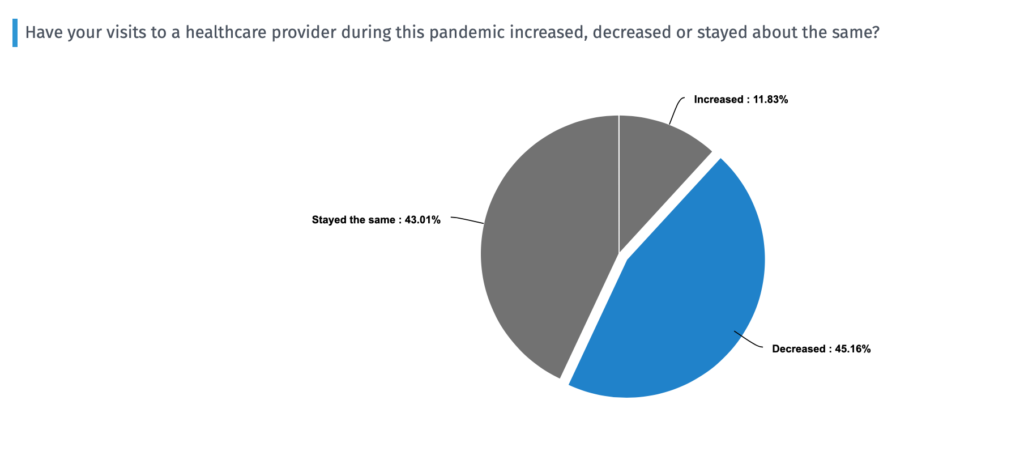Not surprisingly, COVID-19 appears to have significantly impacted pituitary patients’ access to healthcare. Our brief survey elicited information from respondents on their experiences and attitudes towards obtaining healthcare via telemedicine. Dr. Blevins shares the findings in this enlightening podcast.
Below, we also include selected comments provided by survey participants. We thank you for taking the time to share these valuable points of view.
“Telehealth seems very impersonal but necessary. Starting in 2021 our health insurance (a medicare advantage plan) will have a zero copay for Telehealth visits. I have to wonder how that will affect low-income seniors who are not schooled in using ‘zoom’. Connie G. – USA
“My biggest concern is my regular monitoring MRIs. I know I’d be in the machine by myself far from anyone, but who knows how well the area is ventilated, and the person who was in it before me could have been sick. I’ve been delaying the MRI my provider has recommended. Hopefully, nothing bad will come of that decision. My hypopituitary is (probably) LH, so probably it’s not a problem, but they aren’t sure yet it isn’t a tumor or LCH, which is why I get regular scans.” Anonymous
“I liked the experience to use telemedicine. But some doctors are not prepared for that. I have one good experience and one terrible. He delayed for 1hour. And the appointment finished after 4 minutes.” Susana B. – Brasil
“My first visit with my endocrinologist after the pandemic began, was delayed then after five months it was a telephone call. I have an amazing endocrinologist who takes great care of me and I felt reassured. My second telemedicine was three months later, for 15 minutes, I requested the paperwork to complete a MeNs1 test for the second time ( which I need to ask for again) and because of my growth hormone levels not going up ( I assume) I was mailed a requisition for blood tests that is three pages long and in 32 years of being panhypopit have never been tested for. This is where telemedicine fails because in person we would discuss what she is looking at but in 15 minutes there isn’t time, and we did not discuss this before it came in my mail. Also when I have an appointment, I leave work and go to an office but telemedicine takes place with my work computer always demanding attention. In two weeks I am booked for an MRI and between this and blood tests ( which I have to go to a clinic or hospital for) I’m always concerned about my increased exposure to people and COVID-19.” – Patricia C. – Canada.
“I’ve been battling with my Acro for 20 years. Since 2009 we’ve got it under control (i.e. my IGF-1 and HGH levels are consistently in the lower end of my acceptable range). My status is monitored with quarterly labs and consultation with my Endo. April’s lab was done off site and our review was Telemed. June and September’s blood work was put off due to the increased work load of the lab due to Covid. I just had my labs done (samples taken in her office) and the review in person in her office. While her patient load is somewhat reduced to maintain social distancing, I was very uncomfortable with the exposure risk. I very much prefer the electronic consultations. I’m hoping that she goes back to Telemed, especially with the rates rising in our State and local area again. With today’s electronic means available, I hope we rethink how we continue to “do business” in multiple industries, including the medical.” Anonymous.
“Communication with endo is not as effective and [extend] of care not as good.” Anonymous.
Please note we never share our respondents’ contact information, and it is optional. If you are interested in more information, please get in touch with us. Thank you!
© 2020 – 2022, Pituitary World News. All rights reserved.
